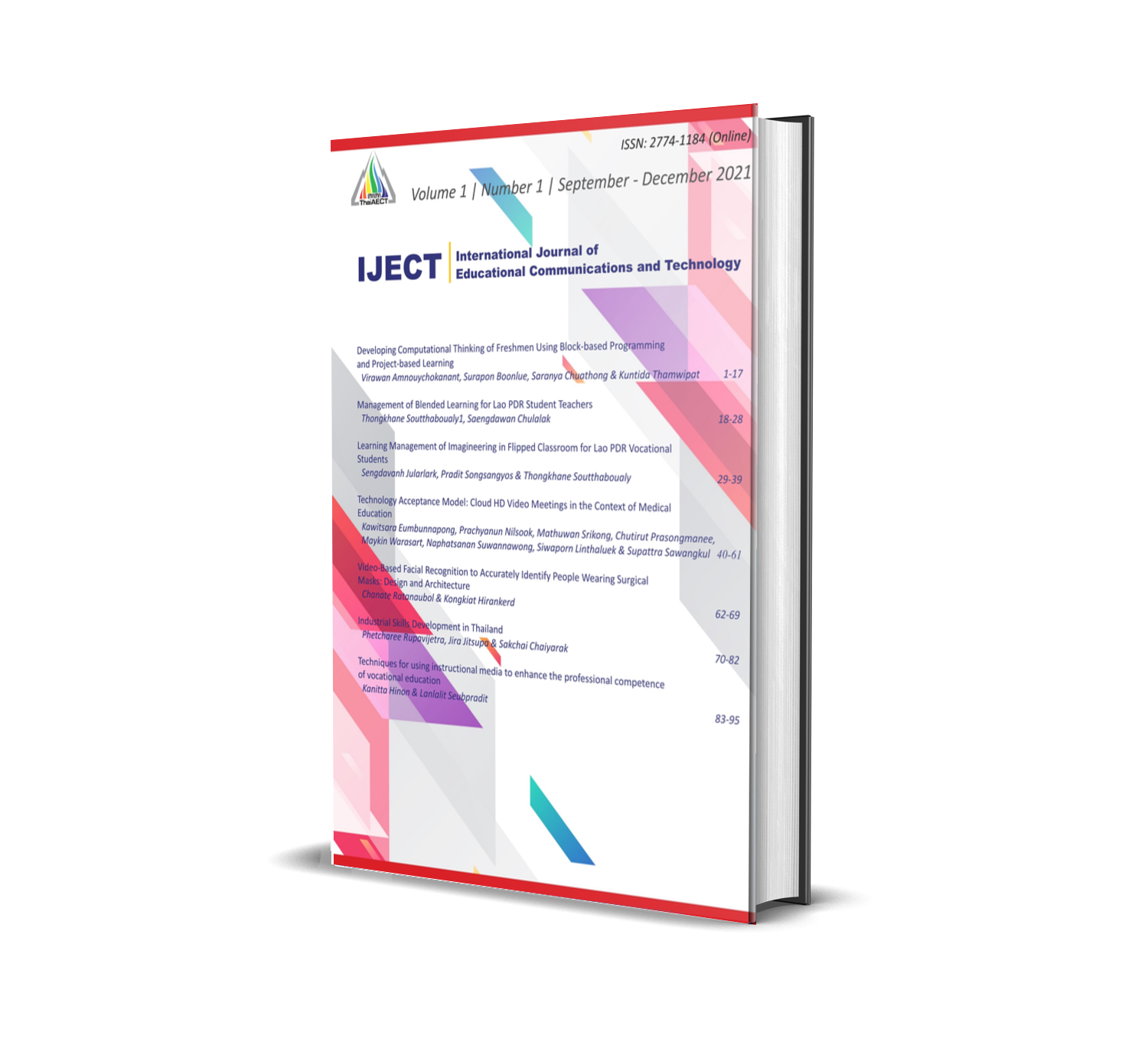Conceptualization and Development of Digital Leadership to Drive Corporate Digital Transformation for Sustainable Success
Keywords:
Leadership, Digital Leadership, Digital Transformation, Organization DevelopmentAbstract
The digital age, marked by persistent demands for transformation, compels today’s workplaces to evolve into modern organizations powered by advanced digital technologies and innovation. This constant evolution exposes leaders to unique challenges birthed by escalating digitization. Consequently, Digital Leadership—defined by practical problem-solving skills—has become a prominent topic regarding the essential competencies managers must develop in this era. Digital Leadership is the discipline of steering an organization towards digital transformation to maintain competitiveness and agility in a swiftly changing landscape dominated by big data and social media. This discipline extends beyond managing businesses in the era of artificial intelligence or digital disruption; it also entails acquiring and applying appropriate digital skills to cultivate technological changes and innovation in diverse circumstances. This article explores the significance and benefits of proficient digital leadership in accomplishing business goals, delves into digital leadership’s concept, characteristics, and skills, and provides a comprehensive roadmap for developing digital leadership, fostering progressive digital leaders, and driving corporate digital transformation for sustained success. It demonstrates that comprehending and appropriately applying digital transformation is crucial for corporate leaders. The article also posits that digital leadership depends on specific factors such as organizational agility, engagement of skilled staff, leadership skill development, support from technology partners, investment, cultural adaptation, and the alignment of new digital technologies with existing ICT System. Lastly, the paper contends that building digital leadership skills necessitates comprehensive change management and strategic selection of digital talents or experts to propel the organization towards enduring success.
References
Aboobaker, N., & KA, Z. (2021). Digital learning orientation and innovative behavior in the higher education sector: effects of organizational learning culture and readiness for change. International Journal of Educational Management, 35(5), 1030-1047.
Bartsch, S., Weber, E., Büttgen, M., & Huber, A. (2021). Leadership matters in crisis-induced digital transformation: how to lead service employees effectively during the COVID-19 pandemic. Journal of Service Management, 32(1), 71-85.
Busse, R., & Weidner, G. (2020). A qualitative investigation on combined effects of distant leadership, organizational agility and digital collaboration on perceived employee engagement. Leadership & Organization Development Journal, 41(4), 535-550.
Caredda, S. (2021). Digital Leadership. Access on: November 12, 2022. Available from: https://sergiocaredda.eu/organisation/whats-new-about-digital-leadership/
Carvalho, A., Alves, H., & Leitão, J. (2022). What research tells us about leadership styles, digital transformation and performance in state higher education?. International Journal of Educational Management, 36(2), 218-232.
Denning, S. (2021). The digital age is transforming job descriptions, especially for CEOs. Strategy & Leadership, 49(5), 8-15.
Erhan, T., Uzunbacak, H.H., & Aydin, E. (2022). From conventional to digital leadership: exploring digitalization of leadership and innovative work behavior. Management Research Review, 45(11), 1524-1543.
GDS Group. (2020). Digital Leadership. Blueprint for Digital Leadership. Access on: November 8, 2022. Available from: https://gdsgroup.com/insights/marketing/blueprint-for-digital-leadership/
Hearsum, S. (2015). How to develop digital leadership capability. Strategic HR Review, 14(5), 1-5.
Henry, C. (2019). Leadership and strategy in the news. Strategy & Leadership, 47(5), 55-59.
Hernandez, S. (2018). Seven principles for leaders in digital transformation. Access on: November 15, 2022. Available from: https://www.comprend.com/insights/2018/seven-principles-for-leaders-in-digital-transformation/
Hizir, Z. (2022). Digital transformation: “jobocolypse” or empowerment? Strategic HR Review, 21(1), 6-9.
Jakubik, M. (2021). How can practical wisdom manifest itself in five fundamental management and leadership practices?. Vilakshan - XIMB Journal of Management, 18(1), 3-25.
Kashive, N., Khanna, V.T., & Powale, L. (2022). Virtual team performance: E-leadership roles in the era of COVID-19. Journal of Management Development, 41(5), 277-300.
Khalili, A. (2017). Creative and innovative leadership: measurement development and validation. Management Research Review, 40(10), 1117-1138.
Khaw, T.Y., Teoh, A.P., Abdul Khalid, S.N., & Letchmunan, S. (2022). The impact of digital leadership on sustainable performance: a systematic literature review. Journal of Management Development, 41(9/10), 514-534.
Leavy, B. (2020). Amit Mukherjee: seven principles shaping digital strategy and leadership. Strategy & Leadership, 48(3), 33-38
Liao, C. (2017). Leadership in virtual teams: a multilevel perspective. Human Resource Management Review, 27(4), 648-659.
Liu, C., Ready, D., Roman, A., Van Wart, M., Wang, X., McCarthy, A., & Kim, S. (2018). E-leadership: an empirical study of organizational leaders' virtual communication adoption. Leadership & Organization Development Journal, 39(7), 826-843.
Machado, C.G., Winroth, M., Almström, P., Ericson Öberg, A., Kurdve, M., & AlMashalah, S. (2021). Digital organizational readiness: experiences from manufacturing companies. Journal of Manufacturing Technology Management, 32(9), 167-182.
Ngayo Fotso, G.M. (2021). Leadership competencies for the 21st century: a review from the Western world literature. European Journal of Training and Development, 45(6/7), 566-587.
Nicolás-Agustín, Á., Jiménez-Jiménez, D., & Maeso-Fernandez, F. (2022). The role of human resource practices in the implementation of digital transformation. International Journal of Manpower, 43(2), 395-410.
Phakamach, P., Senarith, P., and Wachirawongpaisarn, S. (2022). The Metaverse in education: the future of immersive teaching & learning. RICE Journal of Creative Entrepreneurship and Management, 3(2), 75-88.
Phakamach, P., Wachirawongpaisarn, S., & Charoenchue, W. (2021). Digital leadership: definition, skills, roadmap and organization’s digital transformation drives. The 2nd RMUTR International Conference 2021 (Innovative Technology and Creative Work toward Sustainable Development). 7-9 July 2021. Nakhon Pathom: Rajamangala University of Technology Rattanakosin. 267-277.
Ranjith Kumar, R., Ganesh, L.S., & Rajendran, C. (2022). Quality 4.0 – a review of and framework for quality management in the digital era. International Journal of Quality & Reliability Management, 39(6), 1385-1411.
Robertson, J., Botha, E., Walker, B., Wordsworth, R., & Balzarova, M. (2022). Fortune favours the digitally mature: the impact of digital maturity on the organizational resilience of SME retailers during COVID-19. International Journal of Retail & Distribution Management, 50(8/9), 1182-1204.
Ruel, H., Rowlands, H., & Njoku, E. (2020). Digital business strategizing: the role of leadership and organizational learning. Competitiveness Review, 31(1), 145-161.
Schiuma, G., Schettini, E., Santarsiero, F., & Carlucci, D. (2022). The transformative leadership compass: six competencies for digital transformation entrepreneurship. International Journal of Entrepreneurial Behavior & Research, 28(5), 1273-1291.
Tulowitzki, P., Gerick, J., & Eickelmann, B. (2022). The role of ICT for school leadership and management activities: an international comparison. International Journal of Educational Management, 36(2), 133-151.
Uhl-Bien, M., & Arena, M. (2018). Leadership for organizational adaptability: a theoretical synthesis and integrative framework. The Leadership Quarterly, 29(1), 89-104.
Vial, G. (2019). Understanding digital transformation: a review and a research agenda. The Journal of Strategic Information Systems, 28(2), 118-144.
Wang, C., & Cardon, P.W. (2019). The networked enterprise and legitimacy judgments: why digital platforms need leadership. Journal of Business Strategy, 40(6), 33-39.
Weber, E., Krehl, E., Buettgen, M., & Schweikert, K. (2019). The Digital leadership framework: insights into new leadership roles facing digital transformation. Academy of Management Proceedings, AOM, Boston, MA.
Ziadlou, D. (2021). Strategies during digital transformation to make progress in achievement of sustainable development by 2030. Leadership in Health Services, 34(4), 375-391.
Downloads
Published
How to Cite
Issue
Section
License
Copyright (c) 2023 International Journal of Educational Communications and Technology

This work is licensed under a Creative Commons Attribution-NonCommercial-NoDerivatives 4.0 International License.







